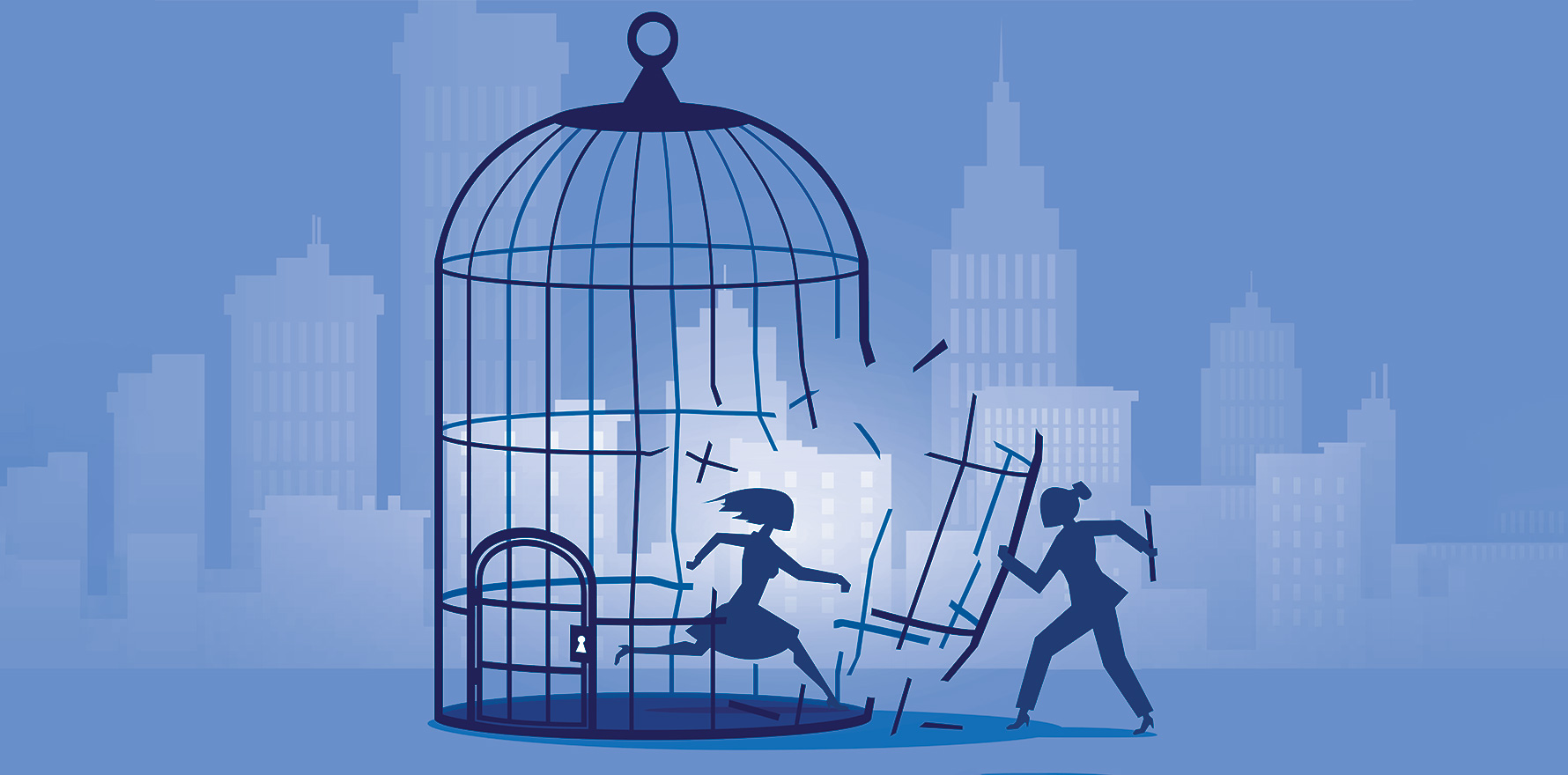Overwhelming pressure can result from believing that we are indispensable.
A good friend recently reminded me that “over-helping is a trauma response”, and also that “it is arrogant to think nobody else can do the work we do”.
I’ve written before about our tendency in general practice to lack boundaries, to take on the people no one else will – not allied health, non-GP specialists or psychologists – and to bulk bill them while we’re at it.
When I suggested to an overwhelmed colleague that her boundaries needed work, her response was “But I know no one else can do it the way I do it”.
Almost every day, I see evidence of colleagues continuing to act in ways that do not align with their stated goals for where they’d like to be and how they’d like to practise, by ignoring their own needs in favour of the wants of patients.
“If I start charging gaps, 80% of my patients won’t be able to see me.”
“Should I just say no to the majority of my patients who won’t be able to afford to see me?”
“I have told staff to contact me if they’re worried, even on my days off.”
Add to that home life, stresses with spouse or kids or both, and a Type A personality and it is very very easy to get overwhelmed and feel like the only way out is to quit.
Before anyone says it, yes, these are typical female GP feelings. The problem is, when we don’t see how we are contributing to the situation at hand, it is easy to then believe that there is no solution except to run away.
As I pointed out to my colleague, none of us is indispensable. She does need to maintain better boundaries and remember it is not her job to be on call 24/7 – and if she has inadvertently trained people to expect this of her, then she is the only one who can break this expectation and cycle.
In my sessions doing psychotherapy/focused psychological strategies with patients, this is the commonest issue I see.
The biggest takeaway I got from upskilling in psychology was the message that every adult has autonomy and the ability to make choices, even and especially choices that do not serve us, and which may lead us into harm including substance abuse, gambling and more.
These choices do not mean that we should be rescuing patients from themselves, since we cannot. What we can do is continue to plant the seeds, much as with smoking, such that when they are ready to change, when the pain of remaining the same outweighs the pain of changing, they know they have an ally in us to help.
This is a core psychological principle that usually allows psychologists and psychiatrists to continue to maintain the therapeutic relationship while charging appropriate fees to stay viable.
Yet in general practice I see this lack of clarity, coupled with defensiveness if someone is feeling overwhelmed and it is suggested they could find a better way to practise – like my colleague above, who insists “only I can do what I do the way I do it”.
I’ve said it all along. In order to do anything well, healthy boundaries are essential. By being available to everyone for everything, we risk not being available to ourselves and to our loved ones when we most want to be. This resentment builds up and festers, through no fault of the other party, who is often unaware they are infringing, because we’ve told them it’s OK to call us out of hours, until we see no option but to walk away.
In all of this, there is the real risk of failing to see how much we are contributing to our own misery. We become focused on the other party who is crossing a line, forgetting that we scratched away that line at some point ourselves, often because we want to be liked more than we want to have a balance.
Sometimes this is because we feel we must provide more value to patients to justify charging gap fees. Others may have a misguided belief that things will fall apart without them, or that there is no one who can do the job as effectively as they can.
Whatever the reason, when I hear this in the context of burnout and overwhelm, and am asked for advice, I try to get the person to reflect on the ways in which a similar pattern is playing out in their life – with friends, with partners, with kids, and more.
Do they do the lion’s share of the housework because “no one does it as well as I do”, then feel resentful?
Do they end up saying yes to helping at school and other events, even though they’d rather say no, because they don’t want to be seen as the bad mum, then end up more exhausted and angry?
Unlike in psychology, I don’t think in medicine we are ever taught about transference and countertransference, nor about seeing the patient as competent adult with autonomy, with the right to choose for themselves – even and especially if they are choices that we disagree with, or that we can see are bad for them. We try to rescue them to avert our own discomfort with the impending trouble. Or to help us feel better about the interaction.
I don’t think we are doing them or ourselves any favours.
When we attempt to rescue someone from the consequence of their own choice, when they’ve not asked us to (or sometimes even when they have) we end up taking on the psychological stress of the situation that is not ours to take. We end up feeling exhausted, burntout, overwhelmed, and sometimes angry and resentful. Over days, week and months, this turns into a desire to run away, to quit.
Yet some 90% of the factors above are caused by us, our desire to fix, our lack of effective communication of our boundaries or our inability to hold them.
Someone recently said that the reason general practice is now so poorly remunerated is because it’s a female-heavy speciality and that, as in education and childcare, the feminisation of an industry invariably results in worsening pay conditions. I’m not sure if I agree. O&G is another speciality that is female-dominant last I looked, and they don’t seem to struggle with boundaries and charging the way we do.
If our specialty is to survive we must stop simply reacting and stop to reflect.
How much of my reaction is because I’m chronically tired/ frustrated/burntout?
How much of that burnout is because I’ve let things slide to keep the peace?
How much of my burnout is because I’ve given people permission to blur the boundaries between work and not-work such that they’re unaware they are crossing a line?
This kind of advice gets me in trouble on forums because it is upsetting to members. It is not my intention to upset people, but if someone says “I’m overwhelmed, what can I do?” it is not helpful to say only things that are comforting to hear.
I’d much rather we have healthy boundaries and be well rested so that our patients respect us, appreciate the time we give them, pay appropriately for it and value our downtime. Then work can be an enjoyable experience most days, rather than a daily grind.
Sometimes in order to improve our lives, we need help seeing how we are contributing to our problems, so we can decide if we want to keep going or find a different way.
Dr Imaan Joshi is a Sydney GP; she tweets @imaanjoshi.





